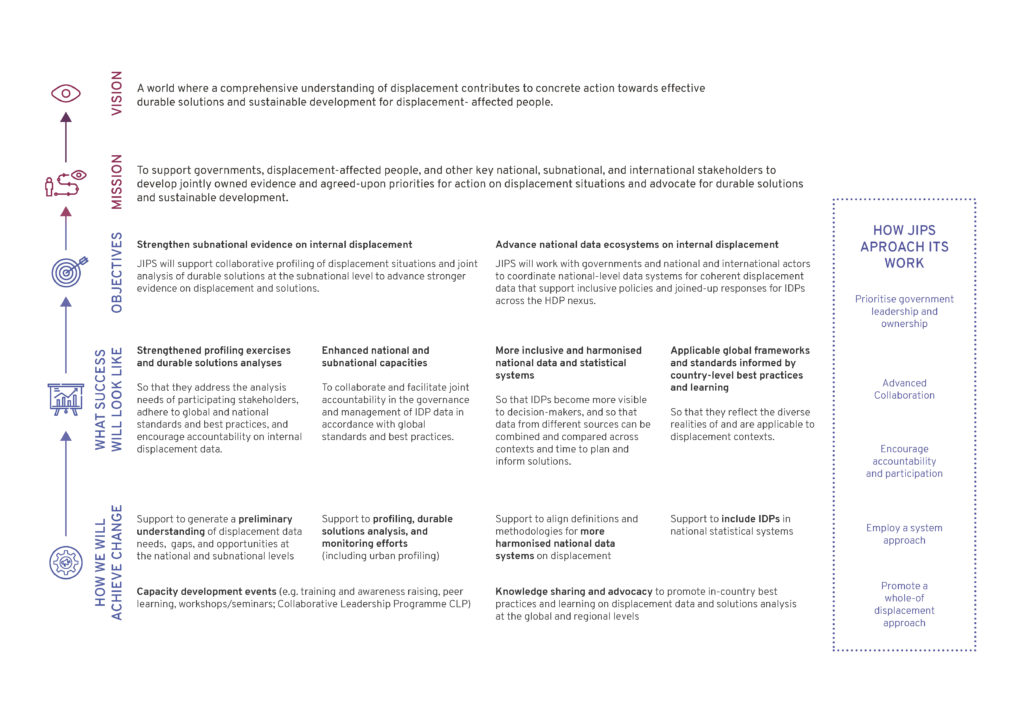Understanding and navigating the complex landscape and future trends we see for displacement data, JIPS’ strategy for 2024-2030 identifies two overarching objectives and four interconnected outcomes that it seeks to pursue, adaptable to the situations in which JIPS is needed: i) strengthening subnational evidence and ii) advancing national data ecosystems on internal displacement. The strategy is one of simplicity and succinctness so as to clearly convey to our diverse partners what JIPS focuses on and offers over the next strategic period.
Importantly, JIPS will continue to focus on support to country partners in line with the Guiding Principles on Internal Displacement, including government actors and other key stakeholders at the national, local, and international levels. JIPS will also draw on its understanding of core data needs from working across multiple contexts and continue to build on the data and capacities that exist. Acknowledging that joined-up responses require joined-up data, JIPS will leverage its role as a neutral broker to advance collaboration and reach consensus from the beginning of displacement data exercises.

The strategy 2024-2030 was developed in parallel to and building on an independent evaluation of JIPS during its strategic period 2021-2023. Intervening at a pivotal time as JIPS adapts to global focus on internal displacement and internal structural changes, it was elaborated through a highly consultative process that engaged JIPS’ Executive Committee members, its donors, team, and other key stakeholders working on internal displacement and data. The breadth and wealth of feedback has allowed JIPS to present what it believes to be an important and ambitious, yet also realistic contribution to the realm of internal displacement data and evidence for durable solutions.